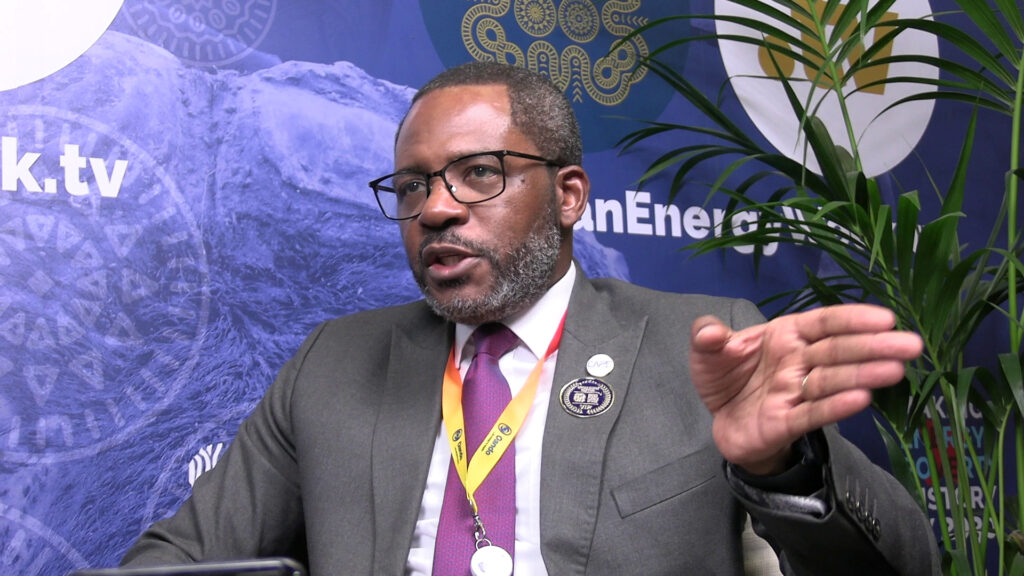
By William Emmanuel Ukpoju
As the world grapples with the challenges of energy transition, Africa finds itself at a critical juncture. With a growing population and increasing energy demands, the continent is faced with the daunting task of balancing its economic development with the need to address climate change. However, Africa’s energy landscape is also replete with opportunities. The continent is home to an abundance of natural resources, including oil, gas, and renewable energy sources. But despite these resources, Africa remains heavily reliant on external funding and expertise to develop its energy sector. This raises important questions about the continent’s energy sovereignty and its ability to drive its own energy agenda. In an exclusive interview with Valuechain, Gabriel Mbaga Obiang Lima, Equatorial Guinea’s Minister of Finance, Economy, and Planning, shares his insights on Africa’s energy challenges and opportunities, and outlines his vision for a more energy-independent Africa.
As a seasoned politician with almost 17 years of experience as a minister, Lima emphasized the need for Africa to address its three major crises: the food crisis, energy crisis, and manufacturing crisis.
To tackle these challenges, he proposed the creation of a pipeline system that would facilitate the sharing of commodities among Central African countries. This initiative, known as the Centro African Pipeline System (CAPS), aims to promote regional cooperation, harmonize different sectors, and create a unified market. “We need to work together as a continent to create a unified energy market and achieve energy security and sustainability.” He emphasizes that regional cooperation is crucial to overcoming Africa’s energy challenges.
The CAPS initiative is a significant step towards achieving this goal. By creating a pipeline system that connects Central African countries, CAPS aims to reduce transportation costs, increase energy access, and promote economic development.
As Mbaga Obiang Lima notes, the CAPS initiative is not just about energy cooperation, but also about promoting regional integration and economic development. “We need to create a unified market, and our independence, so we can continue the exploitation of the resources that we have,” he says.
The CAPS initiative has already gained momentum, with seven Central African countries signing a memorandum of understanding to cooperate on the development of the pipeline system. The project is expected to boost energy supply within the region, reduce dependence on imports of refined products, and eradicate energy poverty by 2030.
With regards to funding energy projects in Africa, Lima emphasised that the African Energy Bank is a step in the right direction, but it has its limitations. The bank will mainly focus on upstream activities, providing funding for oil and gas projects. However, Africa also needs energy banks that cater to midstream and downstream activities.
Mbaga Obiang Lima noted that the energy bank will not be able to solve all of Africa’s energy challenges. “The energy bank is funding one very important area, which is the upstream,” he said. “But clearly, we will need more energy banks. You could have an energy bank for upstream, an energy bank for midstream, and another for the downstream.”
The minister also emphasized the need for specialisation in the energy sector. “The bank that is providing funding for upstream should not be the same thing as the bank providing for midstream, because the upstream is thinking about drilling, drilling ships, the pumps, and the rest,” he said.
In addition to funding, Mbaga Obiang Lima highlighted the need for Africa to acquire technology to exploit its upstream resources efficiently. “We need to reduce our reliance on international companies and develop our own capabilities,” he said.
The minister also emphasized the need for Africa to create its own market and independence to continue exploiting its resources. “By 2030, we need to be able to create our market, and our independence, so we can continue the exploitation of the resources that we have,” he said.
In terms of collaboration, Mbaga Obiang Lima cited the example of Equatorial Guinea’s methanol plant, which exports methanol to other countries. He emphasized the need for collaboration between countries to share commodities and reduce transportation costs.
Regarding renewable energy, Lima noted that Africa is ready to use renewable energy, but it needs to be used intelligently. “We need to use oil for the big ones, we need to use gas for the power, and we need to use solar panels for heating,” he said.
As Africa navigates the complex landscape of energy development, it is clear that the continent’s three major crises – the food crisis, energy crisis, and manufacturing crisis – are inextricably linked. The African Energy Bank, while a crucial step towards energy independence, is only one piece of the puzzle. To truly overcome these crises, Africa must adopt a comprehensive approach that addresses the root causes of these challenges. This requires investing in regional cooperation, acquiring technology, and promoting specialisation in the energy sector. By doing so, Africa can create a unified energy market, drive economic growth, and ensure energy security and sustainability for generations to come. As Gabriel Mbaga Obiang Lima aptly puts it, “We need to work together as a continent to create a unified energy market and achieve energy security and sustainability.” The time for action is now, and Africa’s future depends on it.


